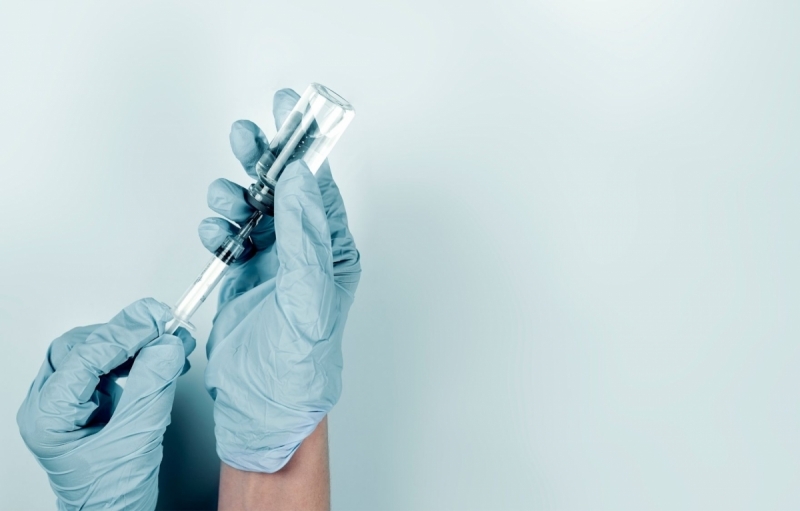
Finally, and as we long for, we now have a defense mechanism against SARS-CoV-2 infection: vaccines. This virus, which led to the collapse of health systems, which claimed the lives of so many people and left so many others with countless sequels, came to radically change our lives but also brought to the public the results of the exceptional work that has been done, over several decades, by the scientific community.
The truth is, if at the beginning we all wanted the arrival of a vaccine, as soon as this actually happened, opinions became a little more divergent. We recognize that fighting this pandemic is a constant challenge. We see it through the advances and retreats in decision-making, and we feel it because uncertainty stirs up our fears and generates new insecurities.
As a health professional, I continue to defend that, in addition to all the behaviors that we must adopt individually and responsibly, the fight against this pandemic must essentially comprise two other issues: vaccination and massive testing of the population. Only then can we achieve the much-desired group immunity and effectively break the transmission chains.
On December 27, 2020, the first inoculation of a vaccine against COVID-19 was registered in Portugal and, since that historic day, much has been written. What is certain is that, currently, there are four vaccines being administered in Portugal and which can be divided into two groups: messenger RNA (mRNA) vaccines (Modern and Pfizer) and adenovirus vaccines (AstraZeneca and Janssen).
Doubts about the effectiveness and safety of these drugs have multiplied, due to the news that is broadcast daily by the media. As such, I decided to approach this theme to answer some questions and demystify the concerns that we often face.
For not making it too long, this article has been divided into three parts. In this first part, I will address some essential questions that will allow us to better understand why we have to be vaccinated.
What is the purpose of vaccination?
One of the principles of vaccination is to produce protection without causing disease, allowing the creation of immunological memory. This will help our immune system to develop a greater ability to specifically recognize an antigen it had already encountered. But, after all, what is an antigen? An antigen is nothing more, nothing less, than a substance that our bodies regard as being foreign. Hence, in its presence, our body triggers mechanisms for the production of another substance, capable of recognizing and neutralizing the antigen: the antibody. Thus, vaccination against COVID-19 presupposes the prevention of the emergence of a serious disease, as well as the consequences that result from this event, which is why it is essential to alleviate the pressure exerted on health systems.
What factors influence the immune response to the vaccine?
It is generally known that the more similar the vaccine is to the structure that induces the natural infection, the better the immune response to the vaccine. However, there are a number of factors that can influence our immune response to vaccination, such as: maternal antibodies, age, presence of comorbidities, nutritional factors, the nature and dose of the antigen that is inoculated, the route of administration of the vaccine, and the presence of adjuvants in it. Usually, in addition to an immunogen specific to the pathogen that is intended to combat, vaccines also carry adjuvants (mineral salts, aluminum hydroxide, or liposomes), in order to activate the immune response. However, in the case of vaccines against COVID-19, this is not the case, due to the immunostimulating properties that are inherent in both the mRNA and the adenovirus particle.
What is group immunity and how can we achieve it?
In addition to the benefits that individual vaccination brings, the concept of group immunity to an infectious disease arises when a large part of the population is vaccinated against the pathogen that causes that same disease. In this way, when a high vaccination coverage rate is reached in a given region, it is possible to more efficiently control the spread of the disease and even lead to its eradication, as has been seen with diseases such as smallpox. However, it is also through group immunity that, together, we can contribute to the protection of individuals whose administration of vaccines is contraindicated, due, for example, to allergy or severe illness, cases of encephalopathy, pregnancy, or immunosuppression. As such, there are two ways to achieve group immunity: either through vaccination or through a natural immunity mechanism, which implies that a considerable part of the population has already suffered from the disease.
Should anyone who has been infected with COVID-19 get the vaccine?
Yes, but for now only one dose of vaccine should be given (whether the vaccination schedule comprises 1 or 2 doses). As explained, when contracting the infection by SARS-CoV-2, the body acquires natural immunity, so, in principle, the probability of people who have already been infected contracting the disease again is lower. Thus, taking the vaccine will only boost your immune response, so it should be done six months after recovery from the new coronavirus infection.
And for those who are sick, should they get vaccinated?
In order for us to get the desired results from vaccination, we need our immune system to respond to vaccines in an appropriate way. When we are sick (fever, cough, or other symptoms), there is a high probability that our body is fighting another infection, so the immune system will necessarily be weaker. In this regard, if possible, it is recommended the vaccination to be postponed. This also explains why some people, especially the elderly, develop a less significant immune response when getting a vaccine.
If you would like to learn more about COVID-19 vaccines, you can read more in Part 2 and Part 3 of this article.
Dr. Andreia Moreira
Farmácia Saúde
Maria Margarida Moreira - Farmácia Sociedade Unipessoal, Lda.
VAT: 514202386
Avenida dos Combatentes da Grande Guerra, 689
4200-190 Porto
+351 225 089 213 (Call to the National Fixed Network) / +351 910 732 211 (National Mobile Network Call)


Bank Transfer